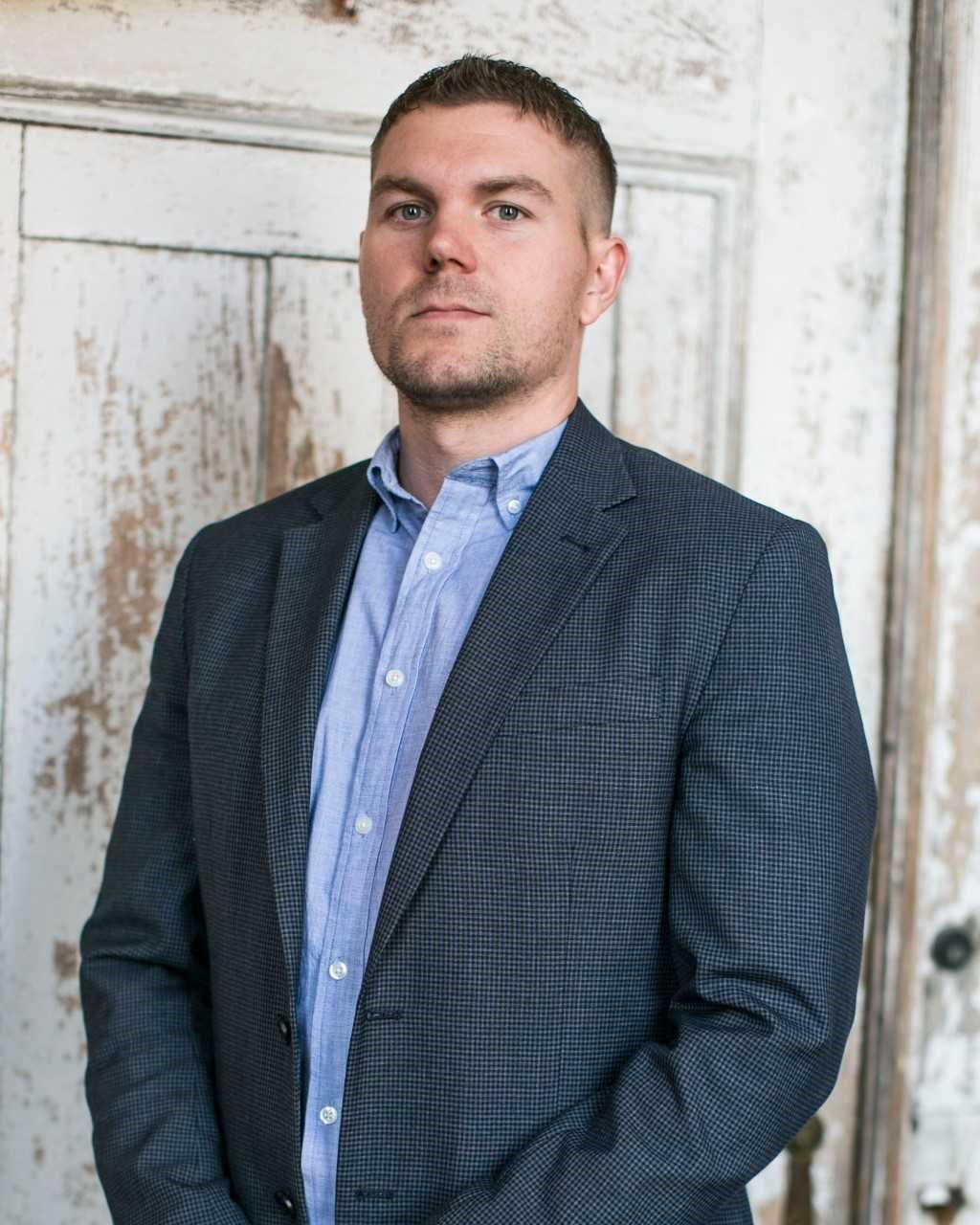 This interview is the fifth in a new series, Writers on Writing, which focuses on craft and process. The series is part of The Common’s 10th anniversary celebration.
This interview is the fifth in a new series, Writers on Writing, which focuses on craft and process. The series is part of The Common’s 10th anniversary celebration.
Read Moloney’s Issue 19 story, “Counsel.”
David Moloney worked in the Hillsborough County Department of Corrections, New Hampshire, from 2007 to 2011. He received a BA in English and creative writing from the University of Massachusetts Lowell, where he now teaches. He lives north of Boston with his family.
TC: Your novel, Barker House, from which “Counsel” is excerpted, is based on your experiences working at the Hillsborough County Department of Corrections in New Hampshire. At what point did you feel like you needed to put your experiences there into a novel?
DM: While I was working at the jail, I had a notebook I kept on me. I’d jot down notes: funny conversations I’d had, turns-of-phrase I’d never heard, scenarios I’d never want to forget. At the time, I was writing mainly poetry, so I turned many of those instances and details into really crappy narrative poems. It wasn’t until I took a few undergrad creative writing workshops that I started to go deeper into the experiences through fictional characters.
TC: Many writers struggle with writing from personal experience, and either avoid it or do it to the point that their imagination becomes restricted by reality. How did you approach and resolve that issue in the early stages of writing?
DM: I did exactly what you said and wrote myself into a corner. I tried to write true stories but fictionalize them by merely changing names. I didn’t want to betray the truth. But I found that the stories were coming off as if a stranger sat down next to you at the bar and started telling you about their life. They were annoyingly uninteresting. I needed to free myself from what really happened and embrace making stuff up. That was when my writing took off. I was having fun recreating these experiences in new ways, playing God with the past.
TC: Do you have any writing rituals or exercises that you turn to when you’re stuck?
DM: Sometimes, if not always, I’m stuck because I am trying to force a character to do something to correct a plot hole or as a means to drive the plot where I want it to go. I know from experience that the character will eventually resist and tell me what they desire, so I avoid them. I write other things. I fold laundry, clean the basement. But that only lasts so long. When I force myself to return to the page, I try to ensure my characters have a clear want or desire on every page. This almost always leads to a discovery—something I didn’t intend for the character. That kind of discovery has a snowball effect that can get me excited again.
TC: Barker House tells the stories of nine correctional officers. How did you ensure that each voice was unique, and that their perspectives balanced each other out?
DM: The book is about a county jail and the people that work there. If you asked every employee at the jail what they believed their job description was, they’d all have a different answer. I tried to embody each character and I started by exploring how they approached their job. It was a way to understand them individually, when much of jail is about conformity.
I also tried to write each character in first person and third person POV. I found that I tended to stick to first person with the characters who had an addiction or physical ailment like seizures or cancer. I felt I was able to be more open and conversational.
TC: What essays/stories/books have you read and enjoyed recently? Why?
DM: I really enjoyed Before Familiar Woods by Ian Pisnarik. It’s about a father returning from Iraq to a son who is now grown, and he finds himself as a single parent. There’s much about masculinity, PTSD, and the opioid crisis.
There’s a really great new story in Salamander’s most recent issue, “Moon Song” by Olivia Wolfgang-Smith. It takes place on the moon, which is now an established colony and tourist attraction. Even though the setting is off-Earth, Wolfgang-Smith is able to explore identity and belonging. Fantastic story.
TC: As a writing teacher, what do you most hope your students will learn about fiction? Why?
DM: I hope my students learn that in order to write good fiction, and write interesting characters, they must be full-heartedly curious. The stories and books that really affect readers explore the human condition, from ecstasy to suffering. They need to be willing to ask themselves what it feels like to be their characters. This can’t be faked. Sometimes, bad things will happen to their characters, and they need to be willing to enter those darks places with them.
Want to hear more from David Moloney? Check out his episode of The Common’s podcast.





